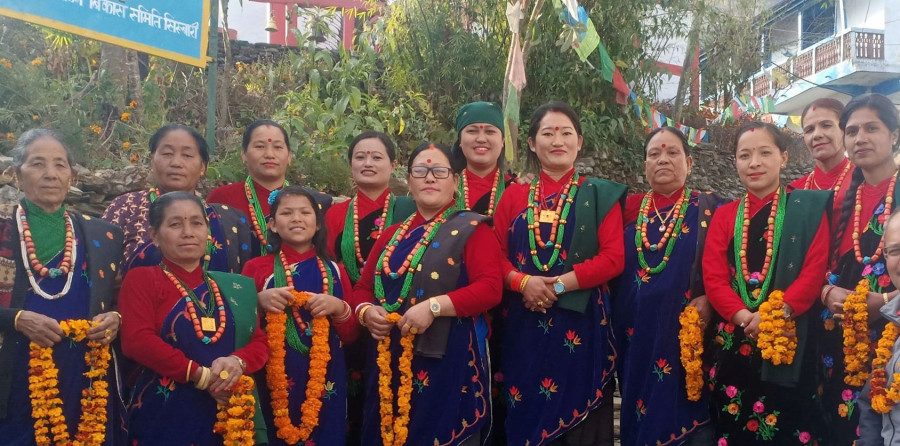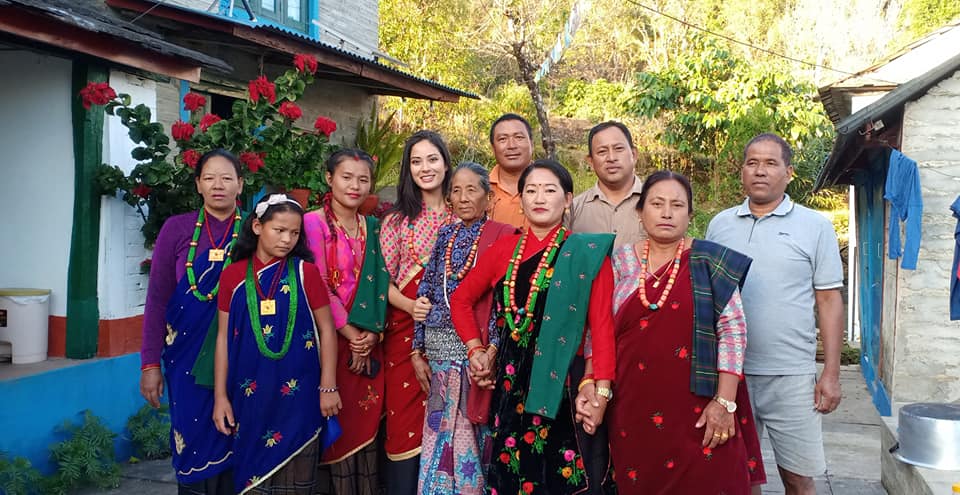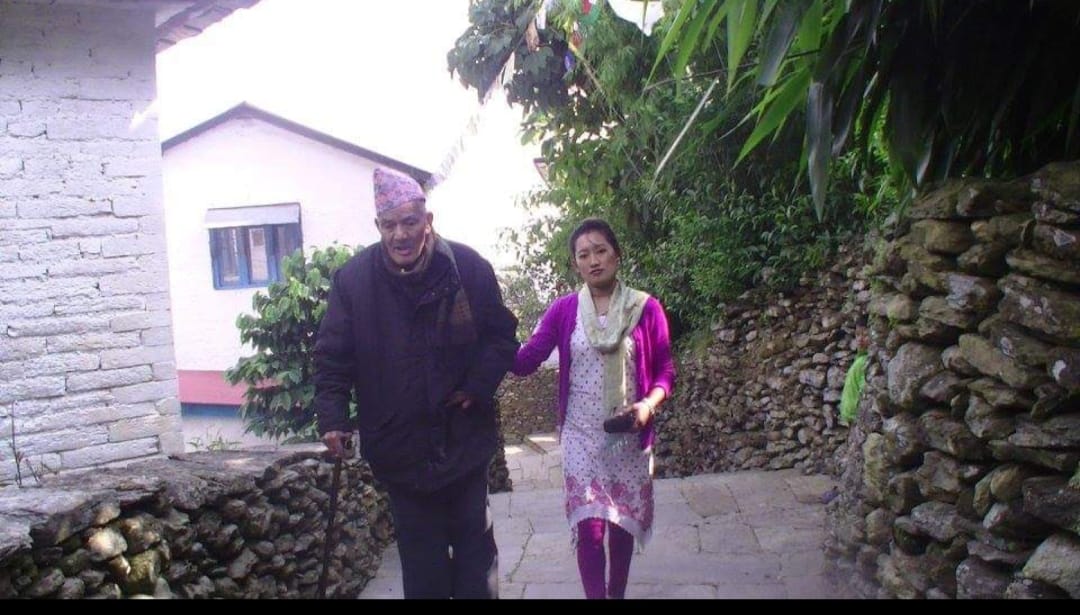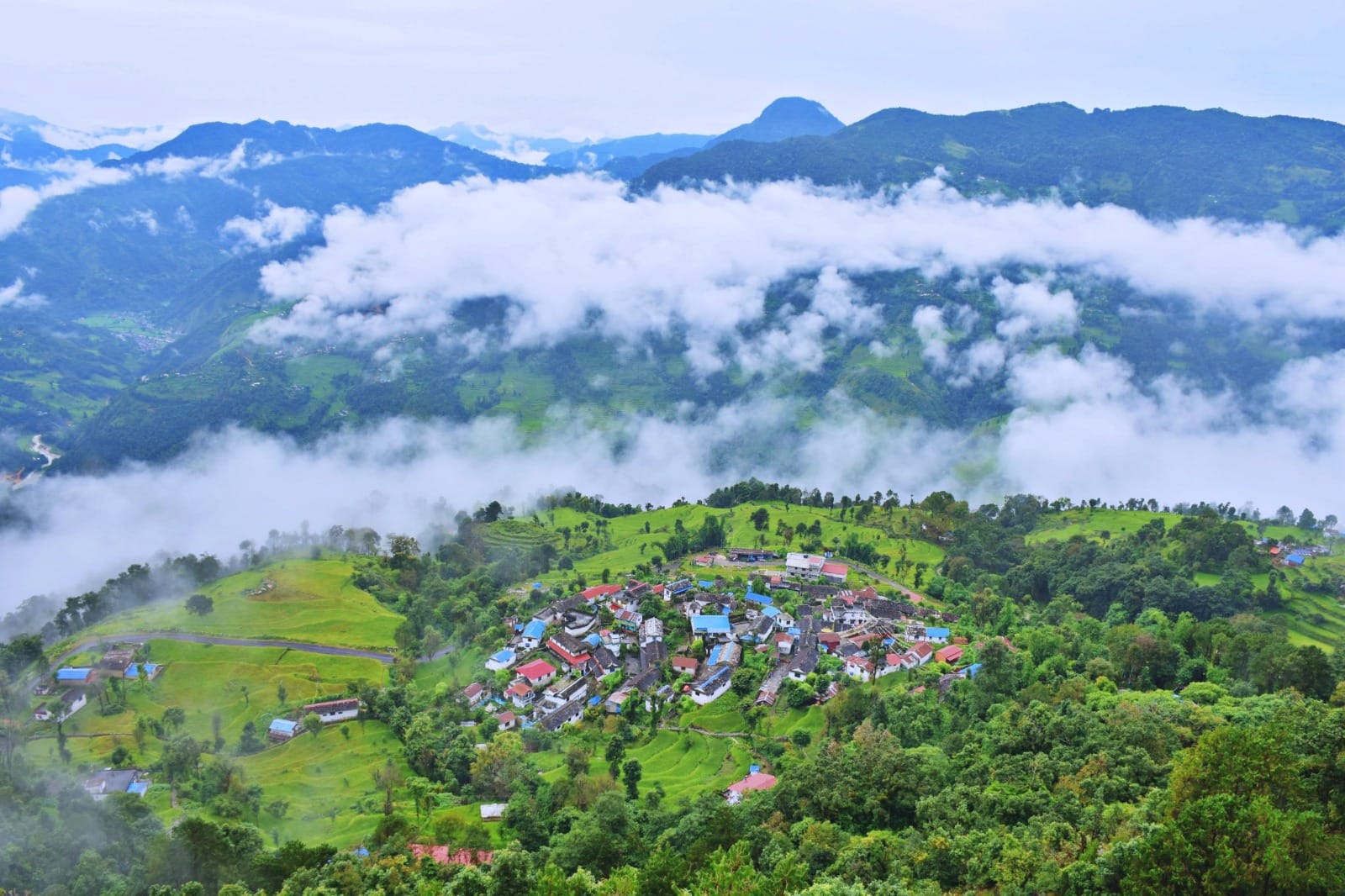Culture & Lifestyle
An empowered woman empowers more women
‘Women, in particular, should gain financial independence because it gives them the freedom to make decisions without having to rely on anyone else.’
Aarati Baral
A short while after sunset, when the sky turns dusky and birds fly to their nests, the Sirubari community homestay in the foothills of Aadhikhola rural municipality, Syangja, comes to life. The homestay committee women draped in Gurung traditional dress and men with Panche Baaja gather to perform ghatu, sorathi and rodhi in the cultural and welcome programme for hundreds of tourists thronging there.
Urmila Gurung, leading the group, hosts cultural programmes and exchanges pleasantries with the guests in full swing. She can also be seen in social activities and development works around the village. It has been more than six years since she has been in the service at her ancestral house in Sirubari, working as a manager and coordinator of the homestay committee. Gurung says that everything she is now is because of the homestay. “I didn’t have a knack for public speaking and managing things. But working in this homestay instilled confidence in me and helped me gain financial independence,” she says.
Walking down memory lane, Gurung remembers what made her work as a homestay service provider in a far-flung place like Sirubari. She wanted to work in the business sector and make an impact on society since she was young. But after getting married at a young age, her career dreams got buried under the heap of conjugal roles for some years. Her life was full of luxury, amenities and everything she wished for in the migrated home of her in-laws in Pokhara. But she wasn’t happy. “I wasn’t satisfied only playing the role of a wife and daughter-in-law. I did pursue an undergraduate degree in management, but deep inside, I still felt vacant,” she remembers.
It was her father-in-law late Rudra Man Gurung’s efforts in establishing Sirubari as the first homestay in Nepal back in 1997 that motivated her to do something similar. Gurung spent the initial years after marriage in Sirubari, where she got an opportunity to observe how people earned money using local resources and accommodating guests. But after his demise, there was no one to continue the family business as her husband was in foreign employment, and Gurung’s in-laws wanted her to join them abroad.

“I had seen people making money by sharing the same roof with guests and performing our cultural songs and dances. I thought I could also do that and also continue the legacy my father-in-law left behind,” says Gurung.
Leaving her home and family behind, she embarked on a journey to Sirubari, but she struggled to bring reforms within the homestay. She realised women had less decision-making power and they didn’t earn much. The homestay committee set a very low amount of money for guests to pay for their services. But she did not let these hiccups deter her.
“The homestay women handled many things from household chores to activities outside the house, but they were paid very little. After realising this, I negotiated with the homestay committee and increased the women’s wages. Now they all make more than Rs 50,000 per month on average,” said Gurung. “Some people in the village would also forbid their wives and daughters-in-law from dancing in front of guests before. But women would earn extra money for the homestay from singing and dancing. Slowly, all the families began accepting such activities,” she added.

Similarly, the few houses providing homestay services was not enough to accommodate all the incoming guests. To solve this problem, Gurung encouraged people who had left Sirubari to return and be involved in the homestay service. Sunita Gurung is one of the villagers who came back from Pokhara for this very reason. “I am eternally grateful for what Urmila maiju did. Had she not motivated me, I wouldn’t have understood the value of this place,” says Sunita.
Another homestay service provider Neetu Gurung, who is the president of the Naba Yuba Club, takes Gurung as her role model. “I have made notable progress in my life by following her footsteps,” she says.
Gurung’s leadership roles have helped her enter politics. She is a member of the Gandaki provincial unit of Nepali Congress. She is also the central vice-president of the Homestay Association of Nepal.

Despite being asked to quit the homestay industry and search for better possibilities outside, Gurung states she is determined to work for the welfare of people, women and homestays in Nepal. “If all the educated people leave their villages, who will lead such places and help the people? We have to learn to create opportunities in the places we belong,” says Gurung.
Having visited many homestays across Nepal, Gurung claims that while women in the industry are earning well, they still face difficulties when it comes to getting the decision making power—both inside and outside their homes. “Everyone should strive to achieve financial independence—women, in particular, should do so because it gives them the freedom to make decisions about their lives without having to rely on anyone else,” says Gurung. She also feels that the government should invest more in women through economic opportunities, financial literacy programmes, and education to uplift their life.




 19.57°C Kathmandu
19.57°C Kathmandu















